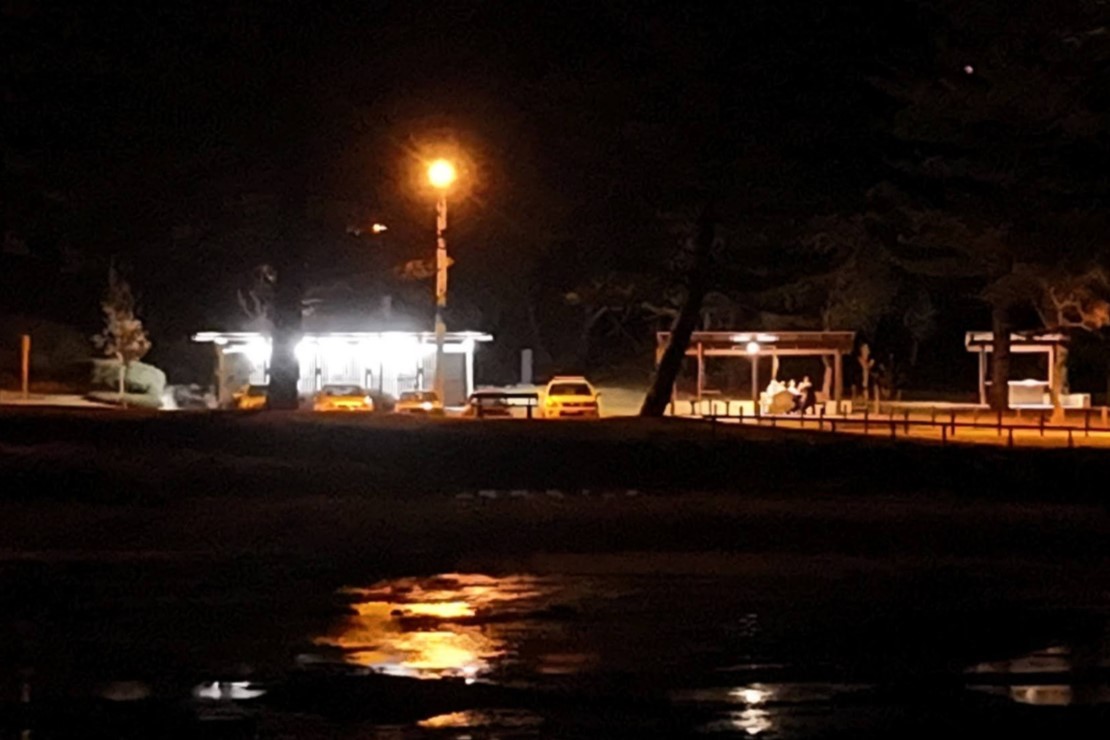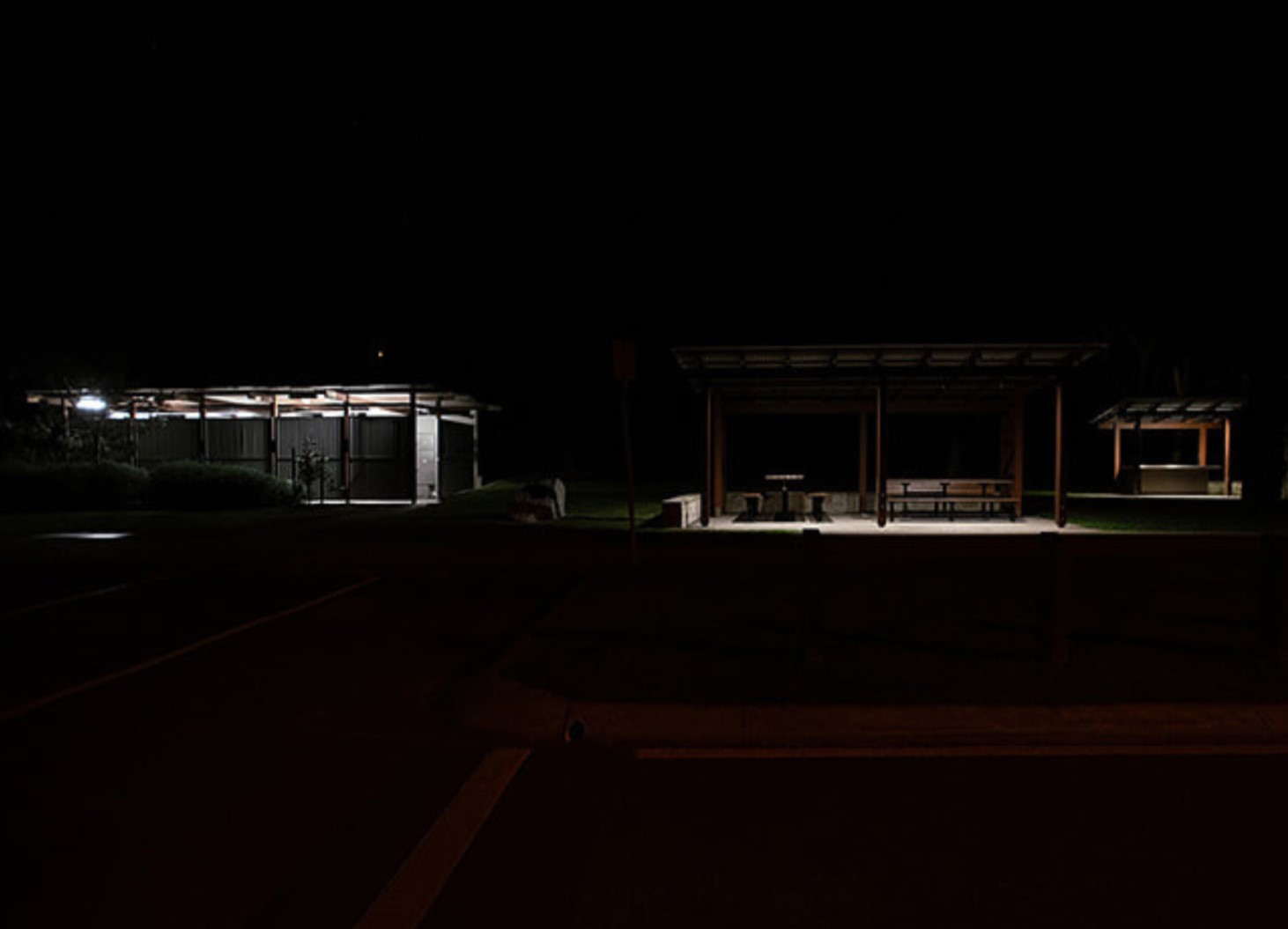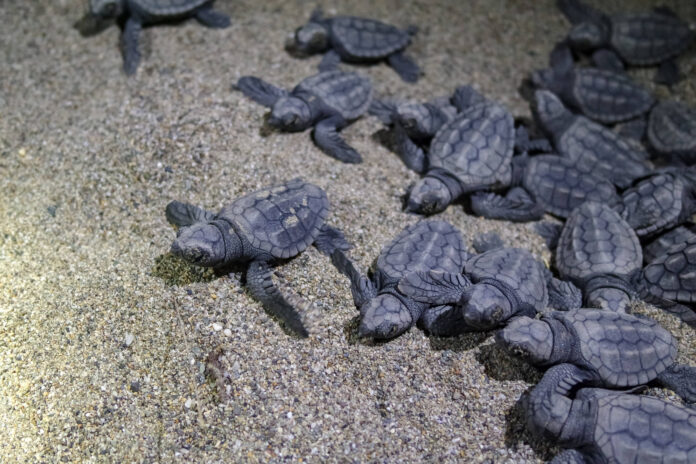More than 30 beachside lights in a Sunshine Coast suburb have been adjusted, replaced or shielded to protect wildlife.
Street, car park and toilet lights at Shelly Beach have been changed to be more animal-sensitive and create a darker night sky and better conditions for critically endangered loggerhead turtles that nest on the beach.
Led by Sunshine Coast Council and supported by the Commonwealth Government Department of Climate Change, Energy, the Environment and Water, the project will develop a case study to demonstrate the benefit and process of implementing the National Light Pollution Guidelines for Wildlife.
The guidelines provide a framework for assessing and managing light pollution impacts on protected wildlife at night.
They also provide more specific advice for marine turtles, seabirds, migratory shorebirds, bats, terrestrial mammals and ecological communities.
Sunshine Coast Council wildlife conservation lead Kate Hofmeister thanked the federal government for the investment of $50,000 to support the project and produce the case study.
“This project has also been a fantastic opportunity to deliver on actions identified both in the Sunshine Coast Marine Turtle Conservation Plan and the Shelly Beach to Moffat Beach Coastal Study,” she said.
“Streetlights are either owned by council or Energex, and we thank Energex for working with us on this change.
“Addressing excessive public lighting has demonstrable benefits for community health and wellbeing, and the incorporation of motion sensing ensures that safety is prioritised for these locations.”


In total, 31 lights have been adjusted, replaced or shielded as part of the project.
Twelve council-owned lights have been replaced with dual-engine motion-activated ones that use turtle sensitive amber lighting in the evening until a person is present, at which time the light will brighten to warm white for a set period of time.
One Energex streetlight has been removed and seven have been changed to wildlife-sensitive lighting.
Council has also retrofitted the lighting in the Shelly Beach toilet block with motion-activated lights and shielding, and reduced the intensity of the wayfinding lighting.
All shelter lighting has been retrofitted with 3000k full cut-off down lighting, fully shielding the light source from the beach while still maintaining useable light levels for the tables and barbecues.
An artificial light at night study, which will use a digital camera equipped with wide angle and fisheye lenses, will monitor the impact these changes have on the light glow at Shelly Beach.
A similar study was done region-wide in 2017 and again in 2022, and is available to view on council’s website.
Turtle nesting season on the Sunshine Coast starts in November.
Residents can help protect threatened species by keeping plastic waste out of waterways and beaches and cutting the glow of lights after 8pm during nesting and hatchling season.
To report turtle tracks, new nests and emerging hatchlings on the southern end of the coast, call Sunshine Coast Council’s Turtle Care hotline 0437 559 067 or for sightings from Mooloolaba north, call Coolum and North Shore Coast Care on 0478 435 377.
Sunshine Coast Council’s marine turtle conservation program is guided by the Sunshine Coast Marine Turtle Conservation Plan.
Want more free local news? Follow Sunshine Coast News on Facebook, LinkedIn and Instagram, and sign up for our FREE daily news email.





